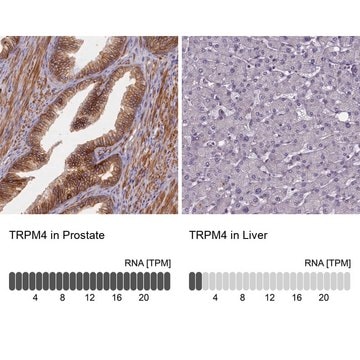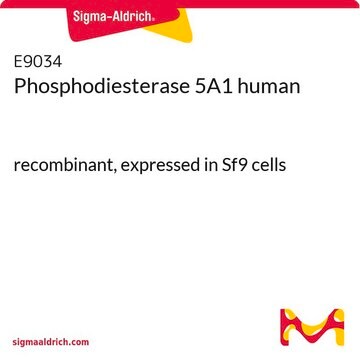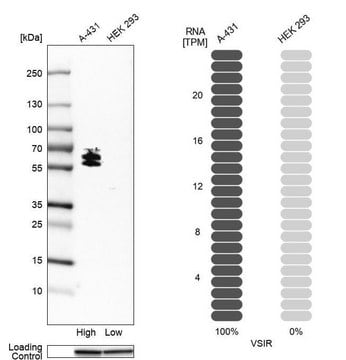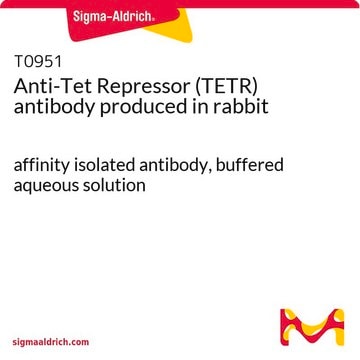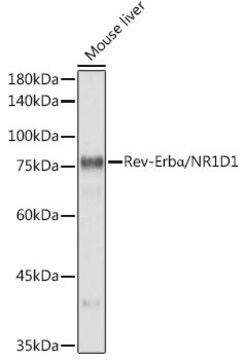MAB5220
Anti-NMDAR2B Antibody, clone 13A11
clone 13A11, Chemicon®, from mouse
Synonym(s):
NR2B
Sign Into View Organizational & Contract Pricing
All Photos(1)
About This Item
UNSPSC Code:
12352203
eCl@ss:
32160702
NACRES:
NA.41
Recommended Products
biological source
mouse
Quality Level
antibody form
affinity purified immunoglobulin
clone
13A11, monoclonal
species reactivity
human
manufacturer/tradename
Chemicon®
technique(s)
immunocytochemistry: suitable
immunohistochemistry: suitable
western blot: suitable
isotype
IgG1
NCBI accession no.
UniProt accession no.
shipped in
dry ice
target post-translational modification
unmodified
Specificity
NMDAR2B
Immunogen
Amino acid region 1033-1161 from human NMDAR2B produced as a GST fusion protein.
Application
Anti-NMDAR2B Antibody, clone 13A11 is an antibody against NMDAR2B for use in IC, IH & WB.
Immunohistochemistry (light and EM) on 4% paraformaldehyde & 0.125% glutaraldehyde fixed tissue: 2.5-5 μg/mL.
Immunocytochemistry: 2.5-5.0 μg/mL
Western blot: 1-5 μg/mL Optimal working dilutions must be determined by end user.
Immunocytochemistry: 2.5-5.0 μg/mL
Western blot: 1-5 μg/mL Optimal working dilutions must be determined by end user.
Research Category
Neuroscience
Neuroscience
Research Sub Category
Neurotransmitters & Receptors
Neurotransmitters & Receptors
Physical form
Affinity purified immunoglobulin. Liquid in PBS. Contains no preservative.
Format: Purified
Storage and Stability
Maintain frozen at -20°C in undiluted aliquots for up to 12 months. Avoid repeated freeze/thaw cycles.
Other Notes
Concentration: Please refer to the Certificate of Analysis for the lot-specific concentration.
Legal Information
CHEMICON is a registered trademark of Merck KGaA, Darmstadt, Germany
Disclaimer
Unless otherwise stated in our catalog or other company documentation accompanying the product(s), our products are intended for research use only and are not to be used for any other purpose, which includes but is not limited to, unauthorized commercial uses, in vitro diagnostic uses, ex vivo or in vivo therapeutic uses or any type of consumption or application to humans or animals.
Storage Class Code
12 - Non Combustible Liquids
WGK
WGK 2
Flash Point(F)
Not applicable
Flash Point(C)
Not applicable
Certificates of Analysis (COA)
Search for Certificates of Analysis (COA) by entering the products Lot/Batch Number. Lot and Batch Numbers can be found on a product’s label following the words ‘Lot’ or ‘Batch’.
Already Own This Product?
Find documentation for the products that you have recently purchased in the Document Library.
Elisa A Waxman et al.
The Journal of biological chemistry, 282(24), 17594-17607 (2007-04-27)
The neuronal transporter excitatory amino acid carrier 1 (EAAC1) is enriched in perisynaptic regions, where it may regulate synaptic spillover of glutamate. In this study we examined potential interactions between EAAC1 and ionotropic glutamate receptors. N-Methyl-D-aspartate (NMDA) receptor subunits NR1
Alexandre A Hoeller et al.
PloS one, 11(1), e0147293-e0147293 (2016-01-23)
Extensive evidence indicates the influence of the cholinergic system on emotional processing. Previous findings provided new insights into the underlying mechanisms of long-term anxiety, showing that rats injected with a single systemic dose of pilocarpine--a muscarinic receptor (mAChR) agonist--displayed persistent
Anteneh M Feyissa et al.
Progress in neuro-psychopharmacology & biological psychiatry, 33(1), 70-75 (2008-11-11)
Recent neuroimaging and postmortem studies have demonstrated abnormalities in glutamatergic transmission in major depression. Glutamate NMDA (N-methyl-d-aspartate) receptors are one of the major mediators of excitatory neurotransmission in the central nervous system. At synaptic sites, NMDA receptors are linked with
Sylvie L Lesuis et al.
Neuropharmacology, 149, 195-203 (2019-01-15)
Programming of the brain by early life stress has been associated with alterations in structure and function of the dorsal hippocampus. Yet, the underlying molecular mechanisms remain largely elusive. In this study, we examined the effects of early life stress
The N-methyl-D-aspartate receptor type 2A is frequently methylated in human colorectal carcinoma and suppresses cell growth.
Kim, MS; Chang, X; Nagpal, JK; Yamashita, K; Baek, JH; Dasgupta, S; Wu, G; Osada, M; Woo et al.
Oncogene null
Our team of scientists has experience in all areas of research including Life Science, Material Science, Chemical Synthesis, Chromatography, Analytical and many others.
Contact Technical Service